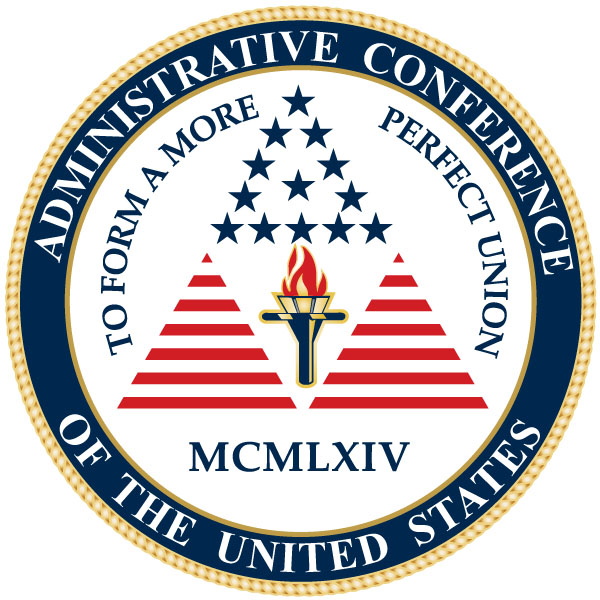Rethinking Auer Deference: Agency Regulations and Due Process Notice
Derek A. Woodman · October 2014 82 GEO. WASH. L. REV. 1721 (2014) Since 1945, the Supreme Court has struggled to determine the level of deference that is due to an agency’s interpretation of regulations that the agency promulgates. For decades, and with little discussion, the Supreme Court has given an agency interpretation controlling weight. Concerned with... Read More
Changing the D.C. Circuit’s Approach to Changes in Interpretive Rules
Rebecca Wernicke · October 2014 82 GEO. WASH. L. REV. 1699 (2014) In Mortgage Bankers Ass’n v. Harris, the D.C. Circuit applied a disfa- vored doctrine for the first time in fourteen years to invalidate an agency’s change to an interpretive rule, holding that the agency needed to undertake notice-and-comment rulemaking in order to make the change.... Read More
Requiring Meaning for the Affordable Care Act’s Prohibition on Annual Limits
Matthew Thrasher · October 2014 82 GEO. WASH. L. REV. 1674 (2014) The Patient Protection and Affordable Care Act, commonly known as “Obamacare,” includes a provision that prohibits insurers from setting annual or lifetime limits to the “dollar value” of coverage for essential health benefits. This element of the law was meant to protect patients with chronic... Read More
Science in the Modern Administrative State: Examining Peer Review Panels and the Federal Advisory Committee Act
Gregory Morrison · October 2014 82 GEO. WASH. L. REV. 1654 (2014) The use of science is integral to the modern administrative state. Scientific studies conducted by government agencies ought to be subject to peer review by external experts. The government’s current use of such outside experts, however, is subject to many constraints—notably the Federal Advisory Committee... Read More
Presidential Influence Over Agency Rulemaking Through Regulatory Review
Peter Ketcham-Colwill · October 2014 82 GEO. WASH. L. REV. 1622 (2014) Under Executive Order 12,866, the Office of Information and Regulatory Affairs (“OIRA”) is responsible for ensuring that regulatory actions taken by federal agencies are consistent with the President’s priorities and do not conflict with the policies or actions of another agency. Although issued by... Read More
The Ordinary Remand Rule and the Judicial Toolbox for Agency Dialogue
Christopher J. Walker · October 2014 82 GEO. WASH. L. REV. 1553 (2014) When a court concludes that an agency’s decision is erroneous, the ordi- nary rule is to remand to the agency to consider the issue anew (as opposed to the court deciding the issue itself). Although the Supreme Court first articulated this ordinary remand rule... Read More
Administrative War
Mariano-Florentino Cuéllar · October 2014 82 GEO. WASH. L. REV. 1343 (2014) This Article takes up an issue with major implications for American administrative law, political development, and security studies: what happened to the American administrative state during and immediately after World War II, and what were the consequences of this period? As the Roosevelt Administration rushed... Read More
Chevron and Legislative History
John F. Manning · October 2014 82 GEO. WASH. L. REV. 1517 (2014) The Court’s decision in Chevron U.S.A. Inc. v. Natural Resources Defense Council, Inc. presupposes that when Congress leaves indeterminacy in an organic act, that indeterminacy reflects an implicit delegation of power to the agency to fill in the details of statutory meaning. Accordingly, a... Read More
Why Who Does What Matters: Governmental Design and Agency Performance
David A. Hyman & William E. Kovacic · October 2014 82 GEO. WASH. L. REV. 1446 (2014) How should the federal government be organized—and who (i.e., which departments, agencies, bureaus, and commissions) should do what? The issue is not new: President James Madison addressed governmental organization in his 1812 State of the Union Address, and, in the... Read More
The Puzzle of Class Actions with Uninjured Members
Joshua P. Davis, Eric L. Cramer, and Caitlin V. May · May 2014 82 GEO. WASH. L. REV. 858 (2014) A puzzle has developed regarding class action doctrine. A number of recent judicial decisions have reaffirmed that classes may be certified under Federal Rule of Civil Procedure 23(b)(3) even if they contain members who have... Read More

